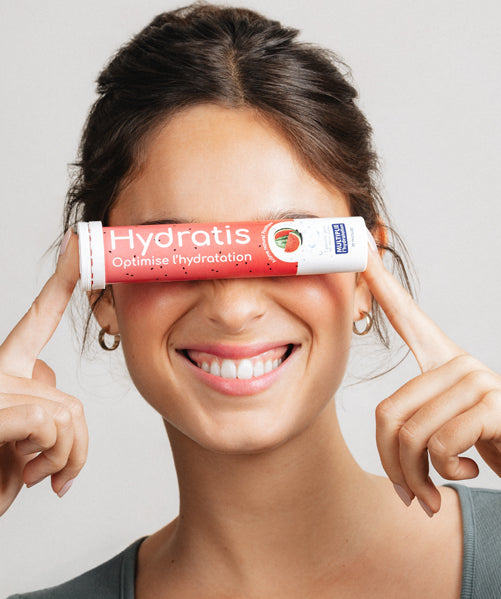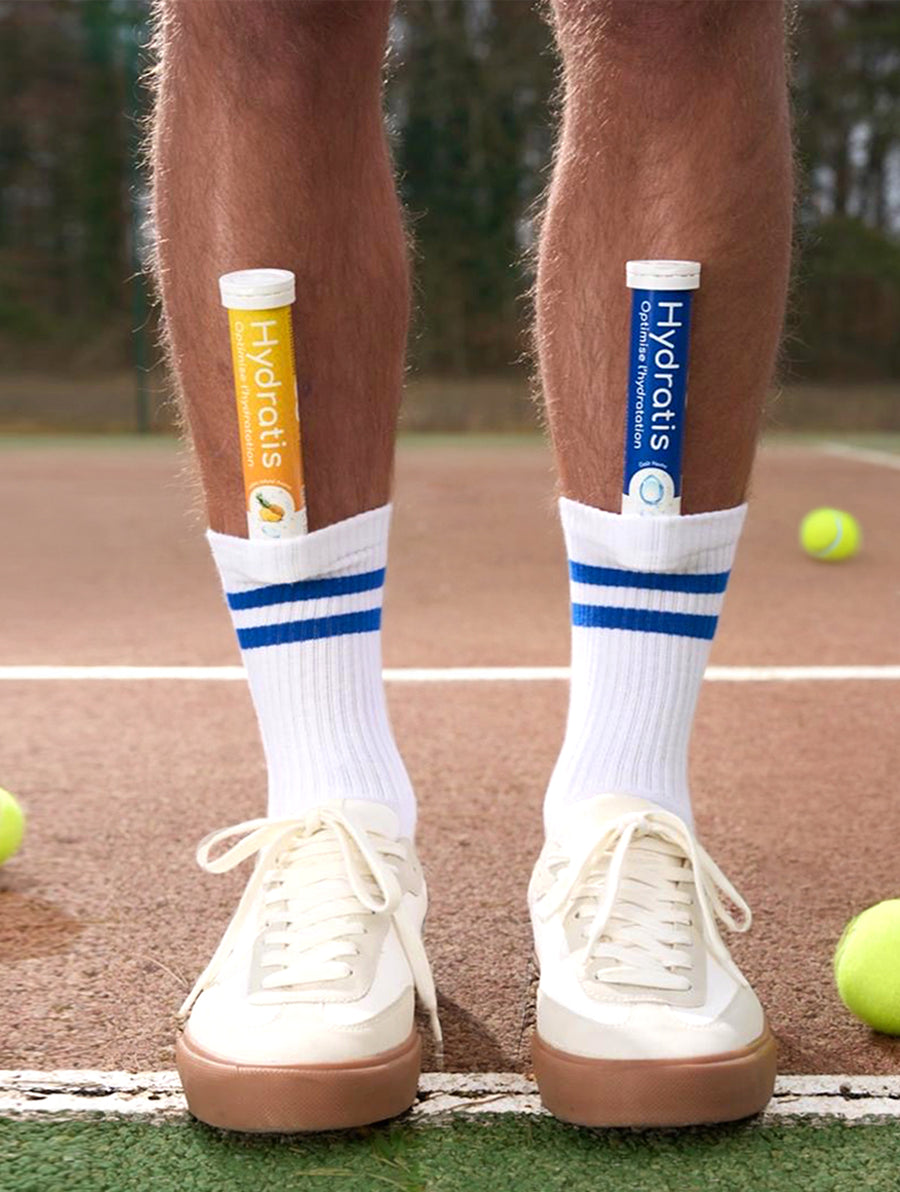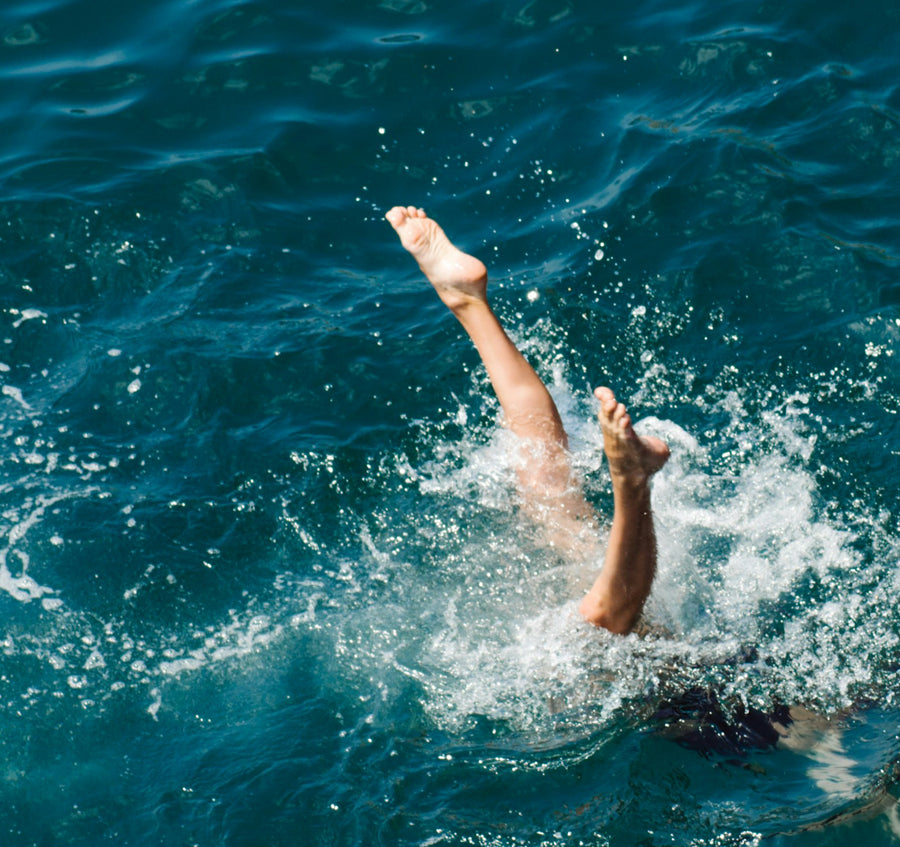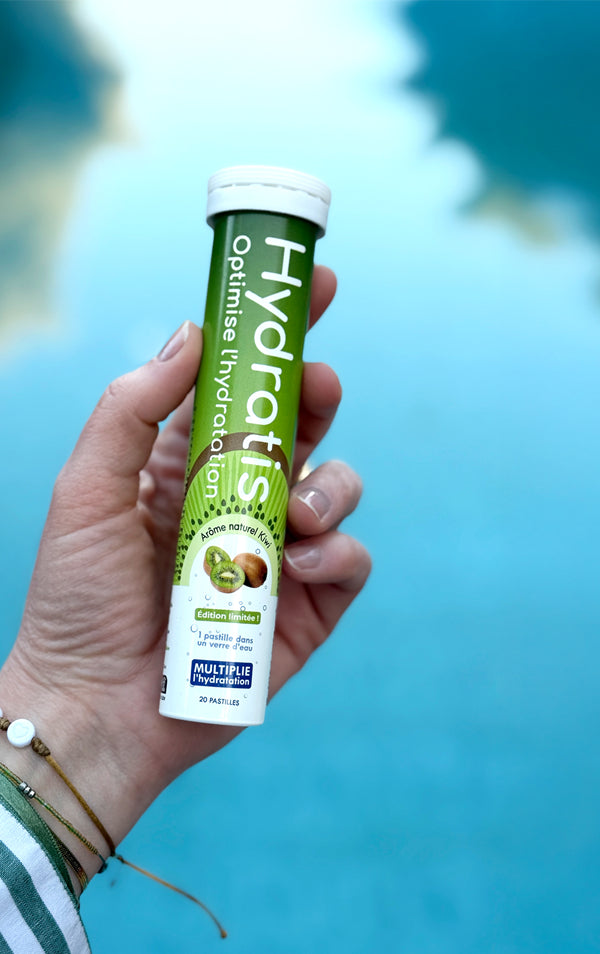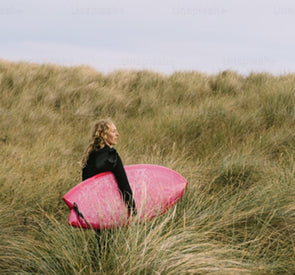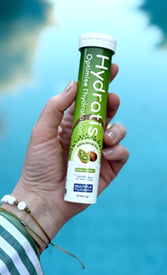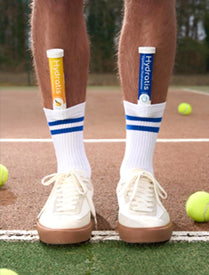Whether we're going on vacation or traveling for business, we're increasingly required to travel, by car or public transportation. In heated or air-conditioned spaces, temperatures are optimized so we can enjoy a trip in optimal conditions. However, have you ever experienced that feeling of dry skin or thirst after a train or plane ride? Air conditioning and overheated spaces deprive the eyes and mucous membranes of the necessary moisture.
Why is the air drier during a trip?
In an airplane, when we are tens of kilometers high, the air comes from two places: on the one hand, the cabin air is recycled (around 70% of the air), and on the other hand, from outside, renewing the air by 30%.
However, the atmosphere is drier at high altitude (drier than in the desert!). This results in a cabin hygrometry (measurement of the humidity level in the atmosphere) of 10%, whereas in everyday life, in France for example, the humidity is around 60%. Thus, the humidity level in the cabin is very low. Humidification systems tend to raise the humidity level for passenger comfort, but this remains insufficient and does not exceed 25%.
On the train, there is a heating or air conditioning system that varies depending on the season, sunshine, and passenger numbers. The air conditioning is constantly running. One of the principles of air conditioning is to cool and dry the air, allowing it to absorb the ambient humidity created by passenger activity in small spaces like the train.
This low-humidity, circulating air is good for keeping the air clean, but it doesn't promote water balance in our bodies.
In a car, the air conditioning is stronger in the front than in the back. If it's directed toward your face, the dry air will dry out your eyes. The best seats are in the back, where you'll enjoy optimal thermal comfort.
We are therefore constantly exposed to variations in temperature and humidity during a trip. As a result, we frequently observe a change in our body water content, sometimes leading to discomfort linked to dehydration.
How our body becomes dehydrated
When the air around us is dry, meaning it has low humidity, the water in our body is attracted to the drier air molecules in the atmosphere. This could be compared to the principle of evaporation, for example. Thus, during a flight, whether it is 2 hours or 12 hours, our body will lose its water, benefiting the air in the cabin. Therefore, in general, the body is dehydrated, causing the skin and mucous membranes to dry out.
Another phenomenon occurs, such as air conditioning directed directly at the face, causing dry eyes, especially in contact lens wearers: the air blown through will affect the lipid layer of the eye's tear film, a natural protective barrier. Once damaged, the water in the tear film evaporates, causing a feeling of discomfort and dryness.
In short, cooler, drier air accentuates the effect of water loss through the eyes and mucous membranes.
The effects of dehydration during travel
Air conditioning and overheated spaces deprive our bodies of the necessary moisture. As a result, we often see dry skin and chapped lips. Also, the nasal mucosa will be dried out, which will become more humid to counteract this phenomenon, potentially leading to rhinitis. Without this naturally produced moisture barrier, we will be more vulnerable to certain microbes. More generally, this dehydration will lead to a feeling of fatigue.
Especially when driving a car, the danger of driving while dehydrated is ever-present. Some studies claim that driving while dehydrated is just as dangerous as driving while intoxicated. The consequences can include blurred vision, slow reflexes, dizziness, and a general lack of concentration.
As a result, your mouth, nose, throat, eyes, and even your skin will become dry—nothing serious. However, it's an uncomfortable feeling of fatigue and dehydration that's best avoided.
How to avoid dehydration while traveling
Before the trip.
The solutions are simple and varied, and begin even before the trip begins. The best way is to make sure you drink 1.5 liters of water a day, even if it's daily.
Additionally, a good travel kit should take your hydration into account. Before your departure, equip yourself with moisturizer and lip balm. For the plane, equip yourself with a bottle of water before boarding. If the discomfort due to dehydration is too strong, it is recommended to bring hydrating eye drops and a nasal spray, which can help alleviate dry eyes and prevent nosebleeds. Do you have difficulty or do not like drinking water, do not feel thirsty, or occasionally need better hydration? Hydratis will allow you to optimize your body's absorption of water, thanks to a lozenge in a glass of water, and will thus prevent dehydration for a trip in good conditions.
Prepare a healthy snack depending on the length of the trip: cucumber mixes and fresh fruits to help stay hydrated.
During the trip:
During your trip, drink at least 1 liter every 4 hours. Since the risk of dehydration is higher during travel, your water intake should increase accordingly.
A diet rich in fresh fruits and vegetables will help you stay hydrated. On the other hand, commonly offered snacks like peanuts or salt-filled cookies will lead to a feeling of dehydration.
To avoid ruining all your hard work, say no to alcohol, whether in the 24 hours before or after your trip. Turning a blind eye to the suggestion of a glass of wine during the flight will do you a favor! Alcohol can lead to a general state of dehydration (see the article on hangovers).
For hydrated skin, occasionally apply a face cream or serum with rich oils to deeply hydrate the layers of your skin, along with a lip balm. This way, tight skin and chapped lips will be a thing of the past.
Also, keeping low air conditioning directed away from your face can help you avoid dry eye and its associated symptoms.
After the trip:
Don't forget to drink at least 1 liter of water in the hours following disembarkation.
The benefits of Hydratis
To stay optimally hydrated for a meeting on the other side of the world or a family trip, Hydratis enriches your water and prevents the discomfort of dehydration. Just add two Hydratis tablets to a water bottle for the duration of your trip, and you're good to go! Rich in mineral salts and trace elements, these tablets will improve water absorption. As a result, Hydratis will improve your body's protective mechanisms and relieve the feeling of fatigue or dry skin during a long journey.
